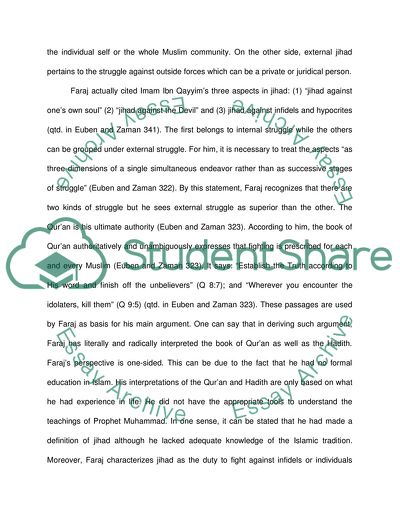Cite this document
(Islamist Thought and Jihad in the Modern World Literature review Example | Topics and Well Written Essays - 1250 words, n.d.)
Islamist Thought and Jihad in the Modern World Literature review Example | Topics and Well Written Essays - 1250 words. https://studentshare.org/social-science/1744523-analyzing-paper
Islamist Thought and Jihad in the Modern World Literature review Example | Topics and Well Written Essays - 1250 words. https://studentshare.org/social-science/1744523-analyzing-paper
(Islamist Thought and Jihad in the Modern World Literature Review Example | Topics and Well Written Essays - 1250 Words)
Islamist Thought and Jihad in the Modern World Literature Review Example | Topics and Well Written Essays - 1250 Words. https://studentshare.org/social-science/1744523-analyzing-paper.
Islamist Thought and Jihad in the Modern World Literature Review Example | Topics and Well Written Essays - 1250 Words. https://studentshare.org/social-science/1744523-analyzing-paper.
“Islamist Thought and Jihad in the Modern World Literature Review Example | Topics and Well Written Essays - 1250 Words”. https://studentshare.org/social-science/1744523-analyzing-paper.


